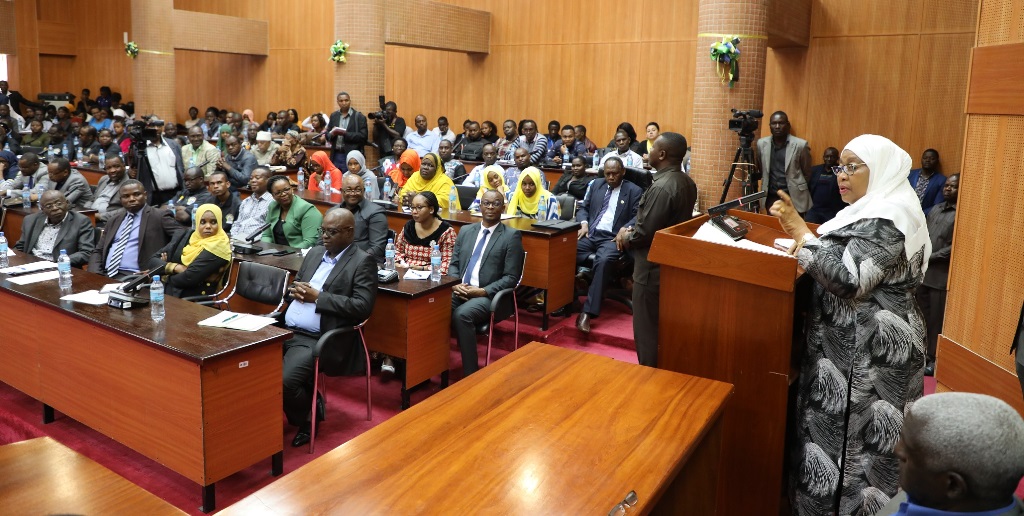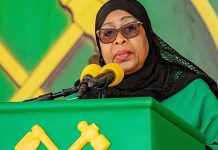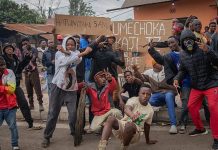AfricaPress-Tanzania: GOVERNMENT is implementing a new strategy to ensure that all state official documents and records are accessed in Kiswahili, Vice-President Samia Suluhu Hassan said here yesterday.
Kiswahili is the most spoken language in Africa, with over 140 million speakers.
The language is a Bantu language believed to have originated from other languages, specifically languages not native to Africa such as Arabic and Portuguese, following historical East African interactions with speakers of those languages.
“The government is committed to ensuring all services and vital records are documented in Kiswahili,” the Vice-President said at the launch of the Kiswahili Day commemoration, urging authorities to work on developing a Kiswahili policy.
The commemoration, which continues today with recognition of individuals and institutions promoting the language, will witness President John Magufuli receiving the highest medal of Shaban Robert.
Samia urged ministries of Information, Culture, Arts and Sports from both parties of the Union to organise an audience with experts to explore areas and official documents which have not been translated into Kiswahili.
“I want the session to examine the areas, including government documents which are not in Kiswahili,” she said. The team must also provide actions in going forward.
It was not clear how the government will be implementing its strategy but observers are hopeful the documents and service can be provided in both languages — English and Kiswahili.
According to the country’s constitution, Kiswahili is the national language.
The law of the land also provides an option for English and another international languages as well as sign language to be adopted as official means of communication.
The Vice-President praised Minister for Justice and Constitution Dr Mwigulu Nchemba for implementing steps to ensure court proceedings and documents are in Kiswahili.
“Our language is gaining prominence worldwide,” she said, directing the ministries and the language councils to work together to address challenges and set up new strategies to teach, promote and enhance the language outside Tanzania.
One of the targets, according to the Vice-President, is to list all international universities teaching Kiswahili. She wants the authorities to be ready to provide technical assistance — translators, trainers, interpreters of the language to foreigners.
She urged more support to the Tanzania Kiswahili Council (Bakita) and the Zanzibar Kiswahili Council (Bakiza) to be able to fully discharge their duties.
Deputy Minister for Information, Culture, Arts and Sports AbdallaUlega said his ministry has already established a database of Kiswahili language experts currently standing at 1,308 professionals.
“We already have a database of professionals who are ready to be used when the opportunity arises,” he said, adding that the professionals hold various academic qualifications.
Bakita Board Chairman Dr Method Samwel said during this year’s celebrations, Tanzania Standards Newspapers (TSN), publisher of Habari Leo, will also be recognised for promoting Kiswahili language within and outside the country.







